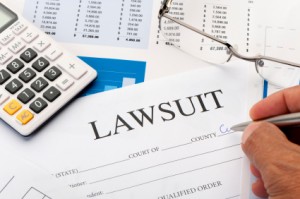Many people wonder if the money they expect to receive from an insurance carrier is taxable. Generally speaking, money received from an injury or accident settlement is not taxable. According to the IRS, if you receive a settlement award based on a personal injury and did not make a deduction for your medical expenses related to your injury, the full amount is not taxable. However, if you did take an itemized deduction for the medical expenses you paid in more than one year, you must include in income that portion of the settlement that is for medical expenses you deducted in prior years to the extent the deduction provided a tax benefit. Continue reading “Is Oklahoma Settlement Money Taxable?”
FREE CONSULTATION
Can My Insurance Company Refuse To Pay My Claim in Oklahoma?

Your insurance company is not supposed to refuse to pay a valid and properly documented claim. If your company refuses to pay your claim, you have options available to you to protect your family and home. Continue reading “Can My Insurance Company Refuse To Pay My Claim in Oklahoma?”
What Is A Statute Of Limitations?

If you have been injured in a car wreck or other manner due to someone else’s negligence, you need to be aware of the statue of limitations and how it can impact your case. A statute of limitations is the time limit which you have to file a lawsuit. Continue reading “What Is A Statute Of Limitations?”
What’s A Fair Settlement Offer From An Insurance Company?
If you have been injured in an accident, such as a car accident, that wasn’t your fault, an insurance adjuster may contact you as soon as a few days after the accident. Typically, the adjuster will want to settle your claim before you’ve had a chance to contact an attorney. Almost always, the insurance company will offer you an amount of money that does not fairly compensate you for your medical bills, possible future medical bills and pain and suffering. While it may seem tempting to go ahead and settle early, it’s risky to do so because you do not know the full extent of your injuries so soon after the accident. Continue reading “What’s A Fair Settlement Offer From An Insurance Company?”
Tye Smith: McDonald’s Hot Coffee Case Is Not What You Think
By Tye Smith, attorney in our Oklahoma City office
I had planned to write about the second reason why BIG business wants these laws passed. That’s going to have to wait.
A lot of people I talk to about these issues always say something along the lines of, “Well, I tend to agree with you, but wouldn’t you also have to agree with me that when people are getting millions of dollars for spilling coffee on themselves, something needs to be fixed?” So, let’s talk about hot coffee.
This McDonald’s coffee case is such a shocking example of BIG business being intellectually dishonest with America that a documentary has been produced. The film is called “Hot Coffee.” It premiered at the Sundance Film Festival and was such a hit that it was bought by HBO. It should be on TV pretty soon. You won’t want to miss it. Click the video to watch an interview with the lady who made the film. It is worth the 2 minutes it takes to watch it.
httpv://www.youtube.com/watch?v=MHdfRPuEJsk&feature=player_embedded
BIG business spent umpteen million dollars promoting lies about the McDonald’s coffee case as an example of why our legal system needs fixed. The public was never given the true story about what happened. As a result, good intentioned people like yourself were only told the lie that BIG business paid to promote and people like yourself were tricked into believing the lie.
I call this being intellectually dishonest. It sickens me. My hope is that when you are given the facts, you will be just as outraged at those who promoted the lie as you were at the lawyers, legal system and the old lady who supposedly got rich. Fortunately, other people before me have written an account of what really happened, so I am going to borrow from their work.
The Facts Of The McDonald’s Hot Coffee Case
Stella Liebeck of Albuquerque, New Mexico, was in the passenger seat of her grandson’s car when she was severely burned by McDonald’s coffee in February 1992. Liebeck, 79 at the time, ordered coffee that was served in a Styrofoam cup at the drive-through window of a local McDonald’s.
After receiving the order, the grandson pulled his car forward and stopped momentarily so that Liebeck could add cream and sugar to her coffee. Critics of civil justice, who have pounced on this case, often charge that Liebeck was driving the car or that the vehicle was in motion when she spilled the coffee; neither is true. Liebeck placed the cup between her knees and attempted to remove the plastic lid from the cup. As she removed the lid, the entire contents of the cup spilled into her lap.
The sweatpants Liebeck was wearing absorbed the coffee and held it next to her skin. A vascular surgeon determined that Liebeck suffered full thickness burns (commonly called third-degree burns) over six percent of her body, including her inner thighs, perineum, buttocks, and genital and groin areas. She was hospitalized for eight days, during which time she underwent skin grafting. Liebeck, who also endured painful debridement treatments, sought to settle her claim for $20,000 but McDonald’s refused.
McDonald’s Knew The Coffee Was Dangerously Hot
During discovery (discovery is the pre-trial process where each party asks for information from the other side to discover important facts), McDonald’s produced documents showing more than 700 claims by people burned by its coffee between 1982 and 1992. Some claims involved third-degree burns substantially similar to Liebeck’s. This history documented McDonald’s knowledge about the extent and nature of this hazard.
Continue reading “Tye Smith: McDonald’s Hot Coffee Case Is Not What You Think”
Deposition Questions Commonly Asked Regarding Auto Accidents
At Carr & Carr Attorneys, we believe that when you take the time to prepare in advance to answer the questions most commonly asked during personal injury depositions, you can make your deposition experience much less frightening. Continue reading “Deposition Questions Commonly Asked Regarding Auto Accidents”
KTUL-8 News: What Not To Say To Your Insurance Company
Here’s basic information you should know. Continue reading “KTUL-8 News: What Not To Say To Your Insurance Company”

